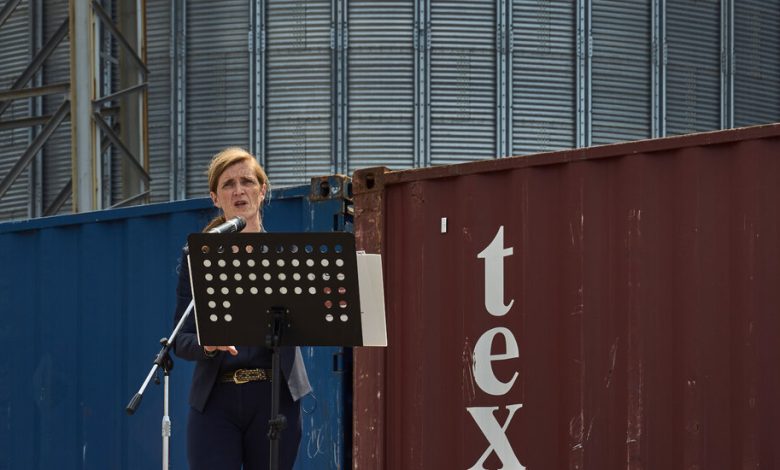The U.S. announces $750 million in humanitarian and agricultural aid for Ukraine.

The United States Agency for International Development announced a total of $750 million in new assistance to Ukraine on Monday and Tuesday, with $500 million dedicated to humanitarian aid and $250 million to support the country’s farmers after Russia refused to extend a Black Sea grain deal.
Samantha Power, the head of the agency, announced the new humanitarian aid on Monday during a visit to Kyiv, the Ukrainian capital, in the hours after Moscow left the grain deal, which had enabled tens of millions of tons of Ukrainian grain to reach world markets via the Black Sea. The move sent grain prices fluctuating on world markets, and raised fears that global food instability would worsen.
“It’s just another example of Russian callousness and disregard for human lives and livelihoods,” Ms. Power said in Kyiv. “Not only here in Ukraine but all around the world.”
The new funds will go toward food assistance, health and hygienic care, and providing emergency shelter, the agency said, and bring the total in U.S. humanitarian support for Ukraine to $2.6 billion, not counting $475 million in emergency funds that have helped repair and maintain Ukraine’s heating and power systems.
Ms. Power continued her visit to Ukraine with a stop in Odesa on Tuesday, when USAID issued a statement saying that $250 million in new aid would be funneled into the Agriculture Resilience Initiative-Ukraine, a program launched in July 2022 by USAID with contributions from both the government and the private sector.
The new funds bring the U.S. government’s support for the agricultural program to $350 billion, the agency said, which will support critical border, agricultural and port infrastructure, as well as financing to small and medium agriculture businesses.
Speaking to reporters on Monday, Ms. Power said USAID was working with the Ukrainian government and farmers on finding and expanding alternative routes for their agricultural exports and assessing what changes that might entail “not only inside Ukraine in terms of Danube River ports, roads, transshipment, or rail, but also in other nearby countries.”